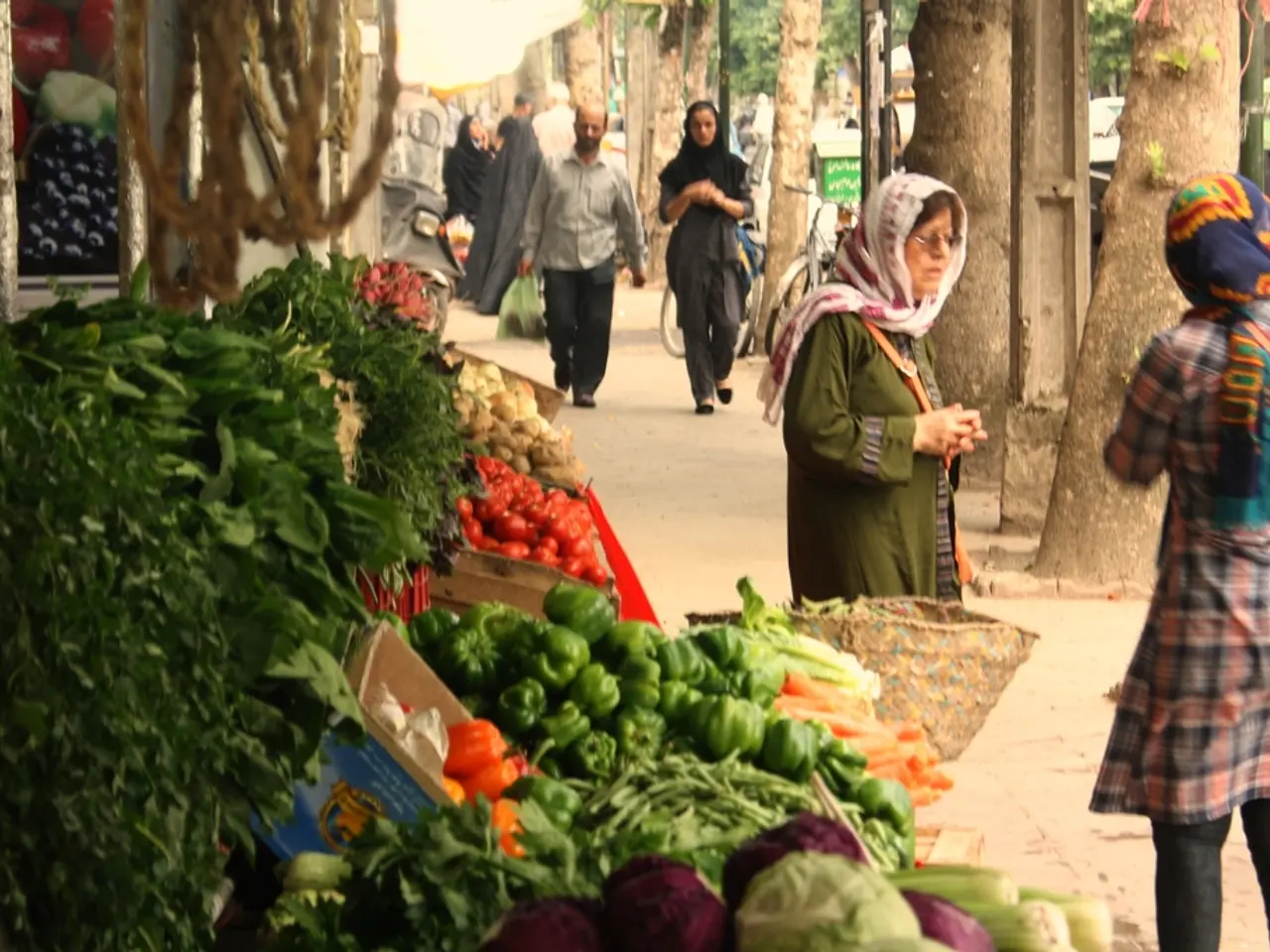Ministries issue alert over potential export gratuities to United States in agriculture and livestock sectors
India's agricultural sector, a significant contributor to the country's agri-GDP, has been a key focus in the ongoing trade deal negotiations with the United States. The Indian government has taken a resolute position against lowering import duties on key farm products, such as maize, soybean, dairy, apples, tree nuts, and genetically modified crops, which the US is demanding for market access.
This hardened stance reflects India's priorities to protect the livelihoods of millions of farmers, maintain food security, and recognise the political sensitivity of the farm sector, which involves over 700 million people dependent on agriculture. Despite pressure from the US, especially ahead of the July 9 deadline when tariffs could be reinstated, India has been unwilling to make broad concessions that could harm its agricultural sector and rural economy.
Indian officials have indicated that any deal, if reached, will likely cover a limited set of products initially and will avoid one-sided openings favouring US products. While the US is eager to gain greater access to India’s vast consumer base for its large-scale, subsidized agriculture, India views liberalization in this sector as politically risky and is standing firm to avoid what it perceives as a politically disadvantageous outcome.
The dairy sector in India, a significant contributor to the country's economy, has been functioning efficiently since the 1970s. However, in 2021, India allowed the import of 1.2 million tonnes of genetically modified soymeal for chicken feed on an exceptional basis due to high domestic feed prices. Since then, there has been no tariff rate quota for the import of milk and its products in India. Imports of dairy products last occurred in 2011.
The US has demanded tariff cuts for maize, soybean, skimmed milk powder (SMP), and poultry products under the proposed trade deal. In response, India imported 0.5 MT of corn at a concessional 15% duty to boost domestic supplies last year. Currently, imports of maize are subject to a 61% duty, while SMP attracts a 68% levy. Easing chicken legs imports from the US (currently 100% duty) would be challenging for Indian poultry farmers.
In the case of maize, domestic prices are above the minimum support price due to rising demand from animal feed, ethanol, and human consumption, making cheaper imports potentially unremunerative for farmers. Similarly, imports of soybean and maize from the US under lower tariffs would negatively impact domestic soybean and maize farmers due to the significant cost difference in production between India and the United States.
India has been the world's largest milk producer since 1998, with around 6 million farmers growing soybeans. The government has announced a minimum support price of Rs 5328/tonne for soybeans, while the cost of oilseed variety from US origin is around Rs 35,000/tonne. The Indian agricultural, animal husbandry, and fisheries ministries have taken a resolute position against cutting import duties on key farm products, including maize, soybean, skimmed milk powder (SMP), and poultry, during ongoing negotiations for an interim trade deal with the US.
In the seafood industry, the bulk of India's exports to the US is 'Vannamei Shrimp', and in FY24, over 41% of India's $ 7.38 billion shrimp exports went to America, making it India's largest market. Removing the 30% customs duty on US shrimp by India wouldn't have a significant impact on local shrimp producers, but it could prompt the US to impose similar tariffs on Indian shrimp exports.
In conclusion, India is not agreeing to significant import duty cuts on key farm products demanded by the US in the current trade deal negotiations, emphasising protection of farmer interests and food security over quick trade concessions. The negotiations are ongoing, and it remains to be seen how both parties will navigate this complex issue.
- The ongoing trade deal negotiations with the United States have seen India taking a firm stance against lowering import duties on key farm products, such as maize, soybean, dairy, apples, tree nuts, and genetically modified crops, recognizing the political sensitivity and economic importance of the farm sector.
- Although the US has demanded tariff cuts for maize, soybean, skimmed milk powder (SMP), and poultry products, India's agricultural, animal husbandry, and fisheries ministries remain resolute against cutting import duties on these products, aiming to protect farmers and maintain food security.
- In the finance and economics sphere, the government's commitment to protecting the livelihoods of millions of farmers and preserving food security is evident in their trade negotiations, as they seek to avoid openings that could harm the agricultural sector and rural economy.
- Both the general-news media and political circles are closely watching the ongoing trade deal negotiations between India and the United States, as the outcome could significantly impact the country's finance, business, and DEFIs (Decentralized Finance) sectors, particularly the dairy, seafood, and agriculture industries.








